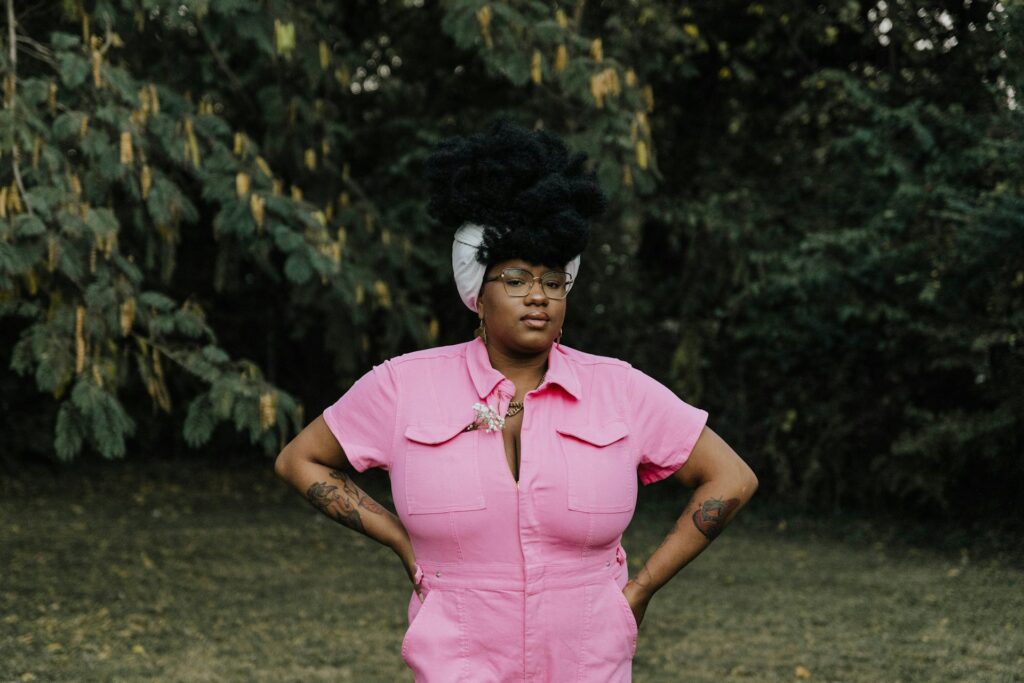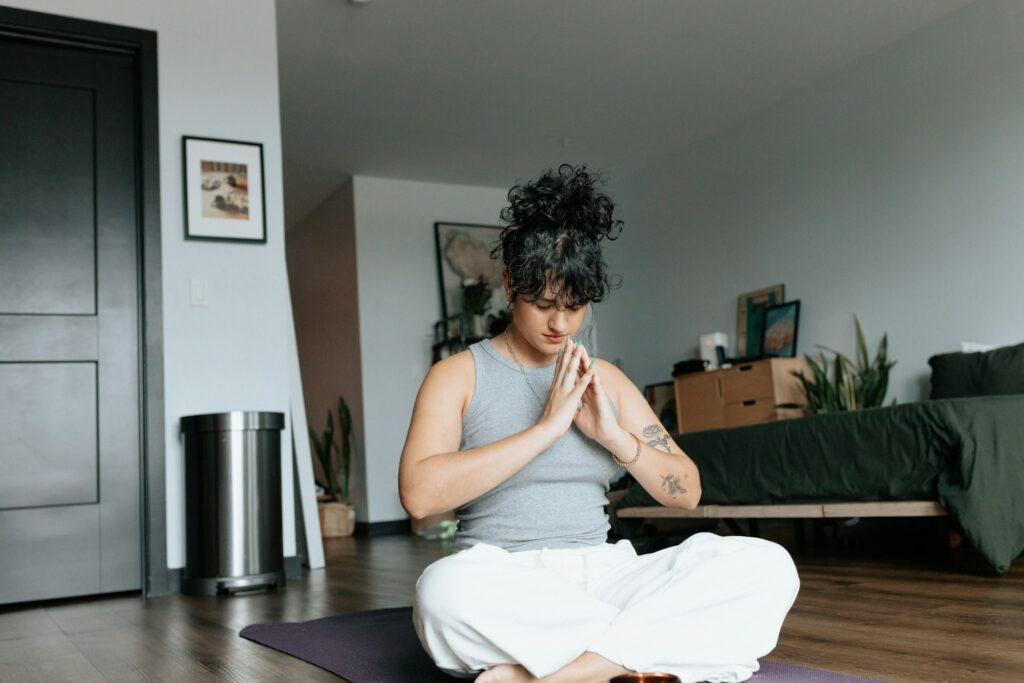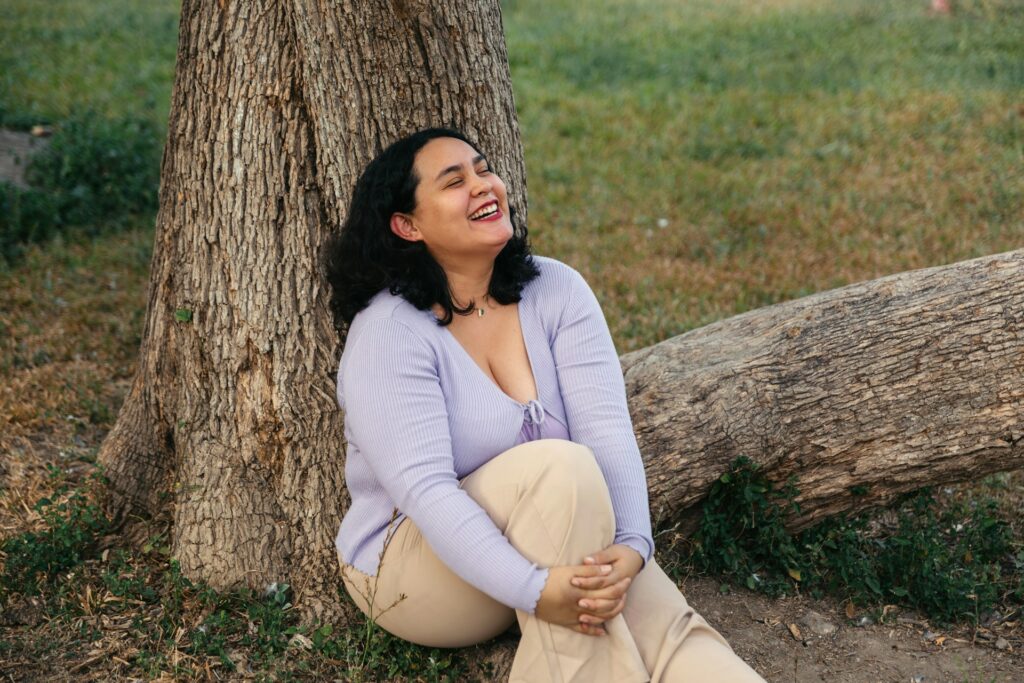“Align with your higher self” gets thrown around a lot, but what does it actually mean in practice?

It’s not about becoming perfect, spiritual, or endlessly calm. It’s about tuning into the version of you that’s wise, aware, and grounded in clarity—not ego, fear, or external pressure. Here are 12 signs you’re moving into alignment with your higher self, even if you don’t always realise it.
1. You respond instead of react.

When you’re in alignment, you stop letting every little trigger control your next move. You take a breath, you pause, and you choose your response—rather than letting your ego or emotions lash out automatically. It doesn’t mean you’re always calm or composed. It means you’re self-aware enough to notice when you’re being pulled into drama or panic, and strong enough to step back from it more often than not.
2. You make choices that feel right, even when they don’t look impressive.

Alignment isn’t about choosing what looks successful from the outside. It’s about making decisions that sit well with your inner values, even if they don’t come with instant praise or validation. That might mean slowing down when the world says hustle, or saying no to something shiny because it doesn’t feel true. Your compass moves from approval to integrity.
3. You stop abandoning yourself to keep the peace.

When you’re out of alignment, you say yes when you mean no. You hide your feelings. You avoid tension to make everyone else comfortable. But your higher self doesn’t need that version of peace—it wants authenticity. Real alignment means staying connected to yourself, even when it risks disappointment or conflict. You realise you don’t have to twist yourself to keep everyone else steady.
4. You honour your energy instead of pushing past it.

Instead of pushing through exhaustion, you start asking what your body and mind need. You rest when you’re tired. You notice when something’s draining you. And you stop measuring your worth by how much you can endure. That kind of self-respect is quiet but powerful. It says, “I don’t have to burn out to be valid.” Your higher self knows that growth and wellbeing aren’t built on self-neglect.
5. You value truth over comfort.

Alignment brings a deep craving for honesty. Not just with other people, but with yourself. You start asking harder questions. You admit when something isn’t working. You face what you used to avoid. It’s not always fun, but truth brings freedom. Even when it’s uncomfortable, it clears the fog and helps you move forward with clarity instead of confusion masked as control.
6. You choose love over fear more often than you used to.

Your higher self doesn’t operate from scarcity. It doesn’t make decisions out of panic or prove-your-worth energy. It’s rooted in trust, not control. That doesn’t mean you don’t still feel fear—it just means fear isn’t the boss anymore. You start asking yourself, “What would I choose if I wasn’t afraid?” More often than not, you begin acting from that place, even if it feels risky at first.
7. You stop needing constant external confirmation.

When you’re aligned, you stop outsourcing your worth. You don’t need every post to be liked, every decision to be validated, or every step to be approved. You trust your inner compass more than the reaction it gets. This doesn’t mean you don’t value connection or feedback. It just means you’re no longer led by the need to be seen or praised to believe you’re on the right path.
8. You start releasing things with less drama.

Letting go—of habits, people, roles—stings less when you’re in alignment. You still feel the loss, but you don’t cling the way you used to. You trust the change instead of resisting it with everything you’ve got. This surrender isn’t passive. It’s active acceptance. It says, “I can love what was and still release it.” That kind of clarity doesn’t come from your ego—it comes from something deeper and more trusting.
9. You feel more calm in situations you used to spiral over.

It’s not that life gets easier—it’s that your response softens. You don’t lose entire days to overthinking. You don’t let one bad conversation ruin your sense of worth. There’s more internal space to breathe and regroup. That steadiness isn’t forced. It comes from knowing who you are beyond your stress. You stop identifying with the chaos and start trusting your ability to move through it.
10. You stop trying to rush your way into clarity.

Sometimes the most aligned thing you can do is slow down. You stop trying to force answers or figure everything out in one sitting. You stop demanding progress just to feel okay. Your higher self doesn’t panic in the pause. It understands that clarity often arrives in stillness, not speed. That patience becomes a form of power, not passivity.
11. You treat yourself the way you want to be treated.

Instead of waiting for someone else to be kind, understanding, or respectful—you start giving that to yourself. You check in. You speak more gently. You honour your needs before they become emergencies. This isn’t about perfection—it’s about consistency. You become less interested in proving your worth and more focused on simply living like someone who already has it.
12. You stop trying to become someone, and start remembering who you already are.

Alignment isn’t about creating some idealised version of you. It’s about stripping away the noise so you can come back to who you were before fear, shame, and expectation got louder than your own voice. You start recognising the parts of you that have always been wise, calm, creative, or kind. You stop chasing “more” and start returning to something deeper—something you didn’t have to earn to begin with.


